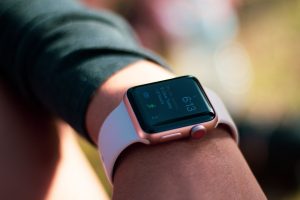In recent years, the healthcare industry has witnessed a surge in wearable technology breakthroughs, revolutionizing patient engagement and collaboration. FitBit and Apple's cost-effective health trackers have played a significant role in driving this growth. According to Software Advice's 2023 Consumer Wearables Survey, which encompassed the feedback of over 850 patients, wearable devices are proving instrumental in enhancing patient involvement and healthcare cooperation.
However, amidst these advancements, the critical importance of prioritizing data security cannot be overstated. As healthcare professionals navigate this transformative landscape, they encounter a spectrum of opportunities and challenges. A staggering 87% of individuals now choose doctors who utilize wearable data, signifying a growing trust in these technologies. Moreover, an overwhelming 91% of respondents expressed a keen interest in sharing their wearable health data with their physicians, a notable surge from 56% in 2021.
This surge in user readiness for wearables reflects a desire to leverage data for improved health, fitness, and the management of chronic conditions. Over 78% of patients expressed a desire for doctor-prescribed wearable activities, underscoring the potential for these devices to revolutionize healthcare delivery. Interestingly, patients are most at ease discussing their wearable data with doctors during in-person checkups, with 76% expressing a preference for this mode of communication.
Lisa Morris, an associate principal medical analyst at Software Advice, talks about how the wearables market is becoming more diverse. She uses biosensors, patches, and rings as examples of new technologies that could help prevent, monitor, and treat long-term diseases like diabetes and heart disease. However, Morris emphasizes the urgent need to prioritize data security as these technologies evolve.
While wearables undoubtedly hold great promise, privacy concerns persist. Only 9% of respondents in the survey indicated reluctance to share their wearable data with doctors. To address this apprehension, it is imperative to understand their reservations. Of this group, 41% expressed concern about potential security breaches compromising their data, while 37% worried about inaccurate data adversely impacting their health.
Morris contends that practices that embrace wearable technology early on, while also safeguarding patient privacy, stand to enhance both patient health outcomes and financial returns. The full study and analysis can be accessed on Software Advice's platform. Also, electronic medical record (EMR) and electronic health record (EHR) software that includes wearables could improve patient outcomes even more by giving doctors useful information from real-time monitoring that happens all the time.
In this era of rapid technological advancement, the healthcare industry finds itself at a pivotal juncture. The opportunity to revolutionize patient care by embracing wearables is unmatched, but it requires a firm commitment to data security and privacy. Striking this balance will be the key to unlocking the full potential of wearable technology in healthcare.























